About the Author
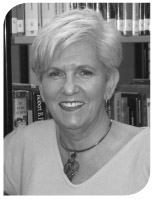
Pat Scales is a retired middle and high school librarian whose program Communicate Through Literature was featured on the Today Show and in various professional journals. She received the ALA/Grolier Award in 1997, and was featured in Library Journals first issue of Movers & Shakers: People Who Are Shaping the Future of Libraries (2002). Ms. Scales has served as chair of the prestigious Newbery, Caldecott, and Wilder Award Committees. She is a past President of the Association of Library Service for Children, a division of the American Library Association. Scales has been actively involved with ALAs Intellectual Freedom Committee for a number of years, is a member of the Freedom to Read Foundation, serves as on the Council of Advisers of the National Coalition Against Censorship, and acts as a spokesperson for first amendment issues as they relate to children and young adults. She is the author of Teaching Banned Books: Twelve Guides for Young Readers, Protecting Intellectual Freedom in Your School Library and Books Under Fire: A Hit List of Banned and Challenged Childrens Books. She writes a bi-monthly column, Scales on Censorship, for School Library Journal, curriculum guides on childrens and young adult books for a number of publishers, and is a regular contributor to Book Links magazine.

Scales on Censorship
Published by Rowman & Littlefield
A wholly owned subsidiary of The Rowman & Littlefield Publishing Group, Inc.
4501 Forbes Boulevard, Suite 200, Lanham, Maryland 20706
www.rowman.com
Unit A, Whitacre Mews, 26-34 Stannary Street, London SE11 4AB
Copyright 2015 by Rowman & Littlefield
Cover Design by Mark Tuchman and Design layout by Josephine Marc-Anthony
All rights reserved. No part of this book may be reproduced in any form or by any electronic or mechanical means, including information storage and retrieval systems, without written permission from the publisher, except by a reviewer who may quote passages in a review.
British Library Cataloguing in Publication Information Available
Library of Congress Cataloging-in-Publication Data
Library of Congress Control Number: 2015934398
 The paper used in this publication meets the minimum requirements of American National Standard for Information SciencesPermanence of Paper for Printed Library Materials, ANSI/NISO Z39.48-1992.
The paper used in this publication meets the minimum requirements of American National Standard for Information SciencesPermanence of Paper for Printed Library Materials, ANSI/NISO Z39.48-1992.
Printed in the United States of America
For Alonda Rollison, Sarah Smeal, and Jane Wassynger, English Teachers, Colleagues, and Friends.
You are my Idols.
Preface
Pat Scales has been a passionate advocate for intellectual freedom long before she launched the Scales on Censorship column with School Library Journal in 2006. Decades of experience as a school librarian informs her ongoing work on these important and often volatile issues, as did her tenure in leadership roles on the American Library Associations Intellectual Freedom Committee and at the Freedom To Read Foundation. It also earned her a place among the inaugural list of Library Journals Movers & Shakers in 2002. Since her first column for SLJ she has been in an ongoing conversation of sorts with librarians, teachers, and parentsa much needed conversation. This collection of the wide-ranging questions from readers and Scales informative answers are gathered in broad thematic groups to help readers explore the all-too daily reality of confronting efforts to censor, ban, or otherwise limit open and ready access to materials in our schools and libraries. Her passionate, unwavering voice provides valuable strategic and tactical approaches to censorship, fine-tuned insight into individual books often challenged, and critical moral support for managing trying conversations. Scales is focused throughout on fostering a culture that embraces and understands the importance of intellectual freedom, and the tools to make it a reality every day in our libraries, schools, and communities. Learn from her to build a background in the ethics involved in defending intellectual freedom and lean on her for insights into real-life situations. Scales on censorship is an essential ally in the ongoing fight.
Rebecca T. Miller
Introduction Up to the Challenge
By Pat Scales
Students do not shed their constitutional rights to freedom of speech or expression at the schoolhouse gate.
Supreme Court Justice Abe Fortas
Tinker v. Des Moines, 1969
I became interested in matters related to intellectual freedom in the early 1970s. At that time newspapers and professional journals reported that people were challenging and banning Sylvester and the Magic Pebble by William Steig because of the pig policemen, and that Portnoys Complaint by Phillip Roth was imprisoned in the basement of the Memphis Public Library because a mother was outraged that her 15-year-old boy had borrowed the book. In those days it was very hard to track censorship cases. Now the digital age makes it much easier for the American Library Associations Office for Intellectual Freedom and the National Coalition Against Censorship to monitor such attempts to abridge free speech. Among the issues that these organizations deal with are book challenges in public and school libraries as well as issues with content taught in the classroom, labeling, Internet filtering, privacy, student journalism and art, and students rights to openly debate issues that may be deemed controversial or inappropriate by some people.
During Occupy Wall Street, I heard a high school teacher say, I told my students not to pay any attention to the news about this event because most of those people didnt have any idea of what they were protesting. Its probably true that some of the protesters didnt have a clue why they were there, but over the course of weeks of occupation I suspect that they learned. The same could be said for some who marched with the Suffragettes and with Martin Luther King, Jr. on their drives to gain equal rights for women and African Americans. Instead of assuming that protesters are ignorant to their causes, its much better to admire them for practicing their right to peaceably assemble, a basic tenet of the First Amendment. This teacher squandered a teachable moment and should have engaged her students in a healthy debate about the issues. She might have even sent them to the library to research the pros and cons of the protest, and asked them to explain the slogan, We are the 99%. Why was the teacher so eager to share her views without asking students to express theirs? Now there is a movement in some states to rewrite the high school American History curriculum to ban any reference to civil discourse. Yet its civil discourse that shaped Americas history and created the democracy in which we live.
In 1966 when the principal of East High School in Des Moines, Iowa, suspended Mary Beth Tinker and fellow classmates for wearing black armbands in protest of the war in Vietnam, he assumed that he had the right to suppress students views. A three-year court battle ended in 1969 when the Supreme Court upheld the students right to free expression and issued a warning to schools that they couldnt deny students the right to speak simply because they wanted to avoid controversy (


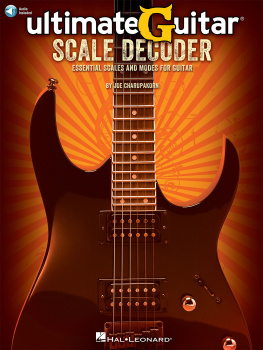
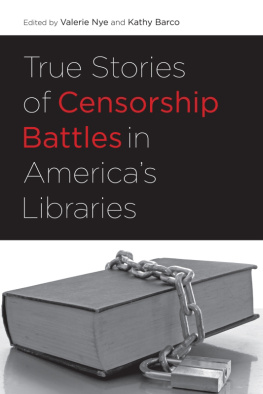
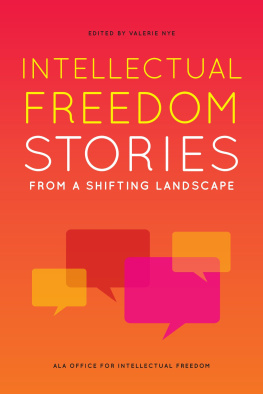
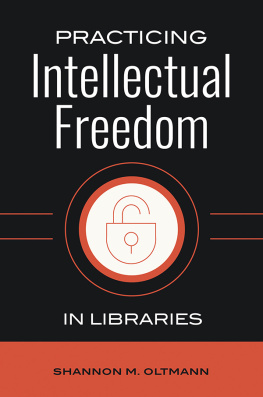
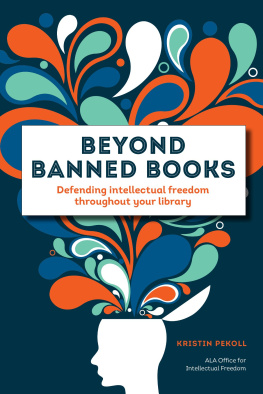
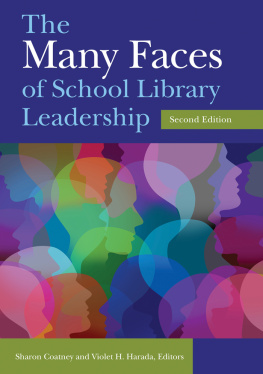
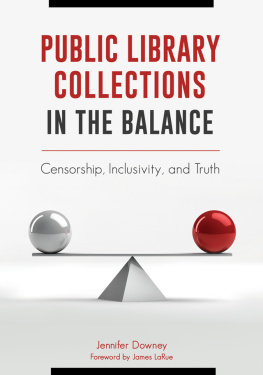
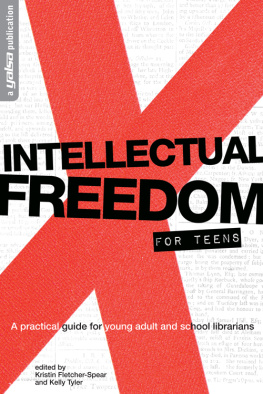
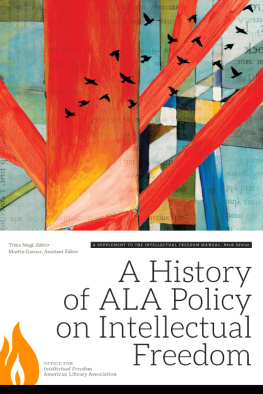


 The paper used in this publication meets the minimum requirements of American National Standard for Information SciencesPermanence of Paper for Printed Library Materials, ANSI/NISO Z39.48-1992.
The paper used in this publication meets the minimum requirements of American National Standard for Information SciencesPermanence of Paper for Printed Library Materials, ANSI/NISO Z39.48-1992.